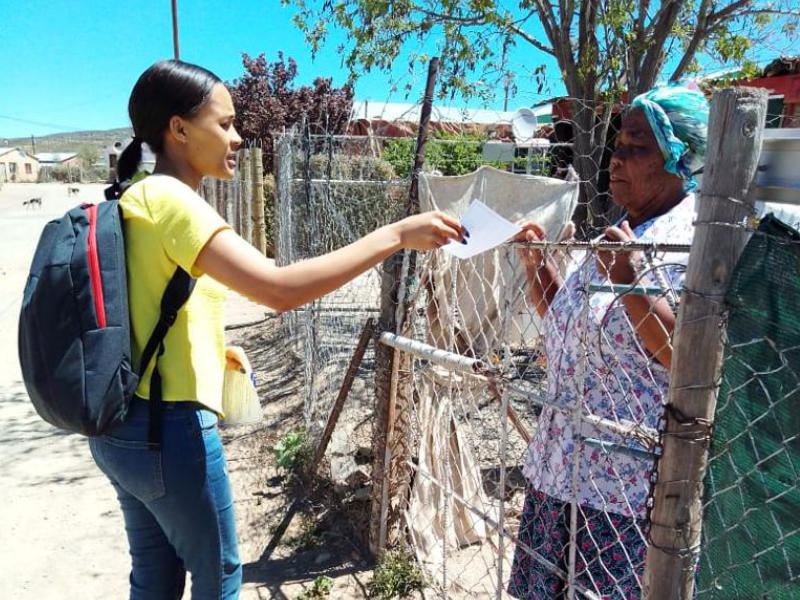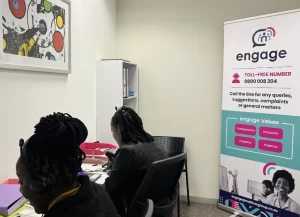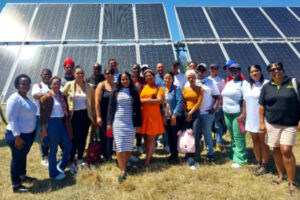The past few months have been a whirlwind. From being directly affected by the Cape Town taxi strike to standing before emotionally charged community members, from bidding a few farewells to team members to winning the Rugby World Cup, it has been an eventful time for us at Cultiver and for SA as a whole.
The events that unfolded got me thinking about the concept of truly constructive stakeholder management and engagement. As a business committed to bridging the gap between communities and the commercial projects that directly affect them, and given our unique context, what are the essential ingredients for successful stakeholder engagement, and does a one-size-fits-all approach even exist?
In truth, engaging with communities and stakeholder groups in SA requires a deep understanding of the country’s cultural diversity, historical context, and especially our contemporary challenges. It is only when they recognise and respect these complexities and make a genuine effort to foster inclusivity, trust, and ongoing dialogue, that organisations build strong and productive relationships with stakeholders across cultures and classes. This in turn contributes greatly to the success of their projects and creates avenues for sustainable social impact that benefits all.
Back to the taxi strike, which erupted on an ordinary business day (coincidentally the same day as our team photoshoot) and left two of our team members stranded and unable to get home that evening. One team member witnessed harrowing acts of violence, leaving her unharmed physically, but emotionally scarred, making it difficult for her to be productive for days afterward.
South Africa’s taxi industry, a lifeline for many in this diverse nation, has long been marred by a shadow of violence. Taxi-related disputes have frequently turned deadly, affecting, not only the industry, but also the communities it serves.
The history of taxi violence in South Africa is a complex narrative that underscores the need for effective stakeholder engagement to address the issue. Like so many of our challenges, the disparities driving taxi violence are not confined to the industry itself, they are deeply intertwined with South Africa’s broader socio-economic and political landscape. Historical injustices, economic inequalities, and social disparities have contributed to the volatile environment in which the taxi industry operates.
Very often, any stakeholder engagement plan, regardless of the industry it serves, necessitates a holistic approach that considers these broader social issues.
Stakeholder engagement plays a critical role in bridging disparities. Done properly, it provides a forum for dialogue and negotiation, allowing different stakeholders to voice their concerns, grievances, and expectations. By engaging in open and respectful discussions, stakeholders can work together to find common ground and seek solutions that benefit everyone involved.
There are many nuances to consider, making the measure of ‘constructive engagement’ differ from one stakeholder group to the next.
So, what should we bear in mind when entering into cross-sector, cross-cultural, and cross-class stakeholder engagement in South Africa?
- Awareness of Positionality. Understand your position and the psychological barriers or enablers you represent by being in the room. For me, being a young, Black, relatively privileged female holds specific significance when addressing angry and unheard communities. It makes me mindful of what measures I need to implement to level the playing field.
- Guarded Intention. Guard your intention carefully; it sets the energy and tone in the room.
- Power Dynamics. Comprehend the power plays and dynamics and find ways to level the playing field as reasonably as possible.
- Openness and Compromise. Be open to learning and willing to compromise.
- Avoid Assumptions. Make no assumptions; instead ask and seek clarity. This is crucial for building strong relational foundations.
- Thoughtful Communication. Choose your words wisely and carefully. Language has the power to unify or divide. Be selective.
- Strength in Vulnerability. Vulnerability is a strength; be honest. Speak the truth, even if it’s unpopular.
- Acknowledge Emotions. When emotions run high, acknowledge the feelings and then circle back to the facts and objectives. Feelings are not facts.
- Depersonalise Differences. Recognise that points of differences and objections are rarely personal. Avoid making them personal.
- Stay Focussed on Objectives. Always remember the objective.
The key take-out for me is that stakeholder engagement necessitates inclusivity. South Africa’s history of exclusion and inequality makes it of paramount importance to actively involve all role-players, especially those who have been historically marginalised.
Of critical importance is to bear in mind that South Africa’s socio-political landscape is continually evolving. As stakeholder engagement professionals, we need to be prepared to adapt our engagement strategies as needed to address new challenges or opportunities that may arise.
As South Africa strives for greater cohesion and economic equality, stakeholder engagement stands as beacon of hope. By fostering inclusive dialogue, it can pave the way for a more just, equitable, and harmonious society, transcending the shadows of violence that have plagued the nation’s history.
With open hearts, willing minds, and genuine collaboration, South Africa can navigate the storm and set sail toward a brighter, more inclusive future
ENDS
At a Cultiver level, and in our continuous efforts to enhance and strengthen relationships within the diverse communities we serve, we have launched our independent, ISO-accredited community hotline – called ENGAGE! – in June this year. This platform aligns closely with the IFC’s best practice principles for stakeholder engagement in emerging markets and is particularly pertinent in a nation as diverse on so many levels as ours.
ENGAGE! facilitates ongoing evidence-based contact between our project host communities and our clients, ensuring that the voices of the unorganised and the unheard, who bear the weight of our country’s inequalities, are heard. It is a project that transcends boundaries and is a win-win for both project owners, as well as the communities that are at the heart and soul of our nation.
ENGAGE! can be contacted on engage@cultivergroup.co.za / 010 012 3347 / 021 013 3600.
.







